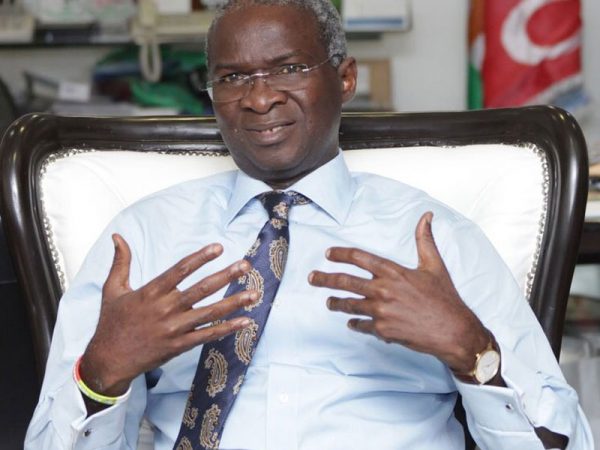The Senate has faulted pervasive claims that one of its members representing Kogi Central, Senator Natasha Akpoti-Uduaghan was suspended for accusing the President of the Senate, Senator Godswill Akpabio of sexual harassment.
Rather, the upper chamber clarified that Akpoti-Uduaghan was suspended specifically due to her flagrant disobedience to Sections 6.1 and 6.2 of the Senate Standing Orders 2023 (As Amended) and her unparliamentary behaviour during its plenaries and proceedings.
The Leader of the Senate, Senator Opeyemi Bamidele made these clarifications in a three-page statement released on Saturday amid the deliberate misinformation and false narratives being circulated by certain media organisations.
Contingent on the report of its Committee on Ethics and Privileges, the Senate had suspended Akpoti-Uduaghan for six months over alleged misconduct and refusal to comply with its sitting arrangement during the plenary.
The Senate upheld her suspension with a proviso that if Akpoti-Uduaghan “submits a written apology, the leadership of the chamber may consider lifting the suspension before the six-month period expires.”
Rather than submitting to the Authority of the Senate, Akpoti-Uduaghan had been misinforming the unsuspecting public that she was suspended because she accused the senate president of sexual harassment.
In a statement he released on Saturday, however, Bamidele clarified that the disciplinary action against Akpoti-Uduaghan was unequivocally a response to her repeated violations of legislative decorum.
In the same vein, the statement further clarified that Akpoti-Uduaghan’s petition on sexual harassment failed to meet the clear and established procedural requirements for submitting petitions to the Senate.
The statement reads in part: “It has come to the attention of the Senate that some media reports are attempting to falsely suggest that Akpoti-Uduaghan’s suspension was due to allegations of sexual harassment.
“This is completely untrue, misleading, and a calculated attempt to distort the facts. If Akpoti-Uduaghan had strictly followed our guiding principles, the Senate would have treated her petition based on merit in line with its practice. But she never obeyed the established practices of the institution where she was serving,” the statement said.
Specifically, the statement revealed that Akpoti-Uduaghan’s suspension was “a decision of the Committee of the Whole Senate, following the submission of a report by the Chairman of the Senate Committee on Ethics and Privileges.”
The statement noted that the report found Akpoti-Uduaghan guilty of violating Sections 6.1 and 6.2 of the Senate Standing Orders 2023 (As Amended) and recommended her immediate suspension.
As established in the findings of the Senate Committee on Ethics and Privileges, the statement pointed out that the disciplinary action was “a response to Akpoti-Uduaghan’s repeated violations of legislative decorum stated as follows:
” Refusing to sit in her assigned seat during plenary on 25th February 2025, despite multiple pleas from the Minority Leader and other ranking Senators—an act of open defiance and disorderly conduct.
“Speaking without being recognized by the presiding officer, in clear violation of parliamentary practices and procedures on 25th February 2025.
“Engaging in unruly and disruptive behavior, obstructing the orderly conduct of Senate proceedings. Making abusive and disrespectful remarks against the leadership of the Senate.
“Defying and refusing to comply with the summons of the Senate Committee on Ethics and Privileges mandated to investigate cases of misconduct,” the statement highlighted violations of the Senate Standing Order 2023 (As Amended) by Akpoti-Uduaghan.
The statement, therefore, noted that these actions represented a direct challenge to the Authority of the Senate and a violation of the Senate Standing Orders 2023 (As Amended) that govern the business of the Senate and the conduct of all its members without any exception.
The statement noted that the disciplinary measure was imperative, necessary and justified to restore order and uphold the integrity of the Senate as the country’s foremost democratic institution.
“Contrary to the false claims being circulated, Akpoti-Uduaghan was not suspended for making any sexual harassment or for submitting a petition. Her petition was rightfully discountenanced because it failed to meet the clear and established procedural requirements for submitting petitions to the Senate.
” The rules of the Senate apply to all members without exception, and no petition—regardless of its subject—can be considered if it does not follow due process. To suggest that her suspension was linked to her petition is not only a distortion of facts but an intentional and malicious attempt to mislead the public,” the statement noted.
While thanking some media organisations for their reporting, the statement urged the media not to distort facts to suit a false narrative expressing dissatisfaction with an attempt to politicise a disciplinary action that was strictly based on clear violations of Senate Standing Orders 2023 (As Amended).
The statement said: ” This coordinated misinformation campaign is nothing more than an attempt to politicise a disciplinary action that was strictly based on clear violations of Senate Standing Orders 2023 (As Amended).
“It is reckless, misleading, and a disservice to the people of the Federal Republic of Nigeria, who deserve truthful and factual reporting. We, therefore, urge all foreign correspondents and responsible media houses to correct these misrepresentations and avoid propagating falsehoods that undermine the integrity of Nigeria’s legislative process.”

